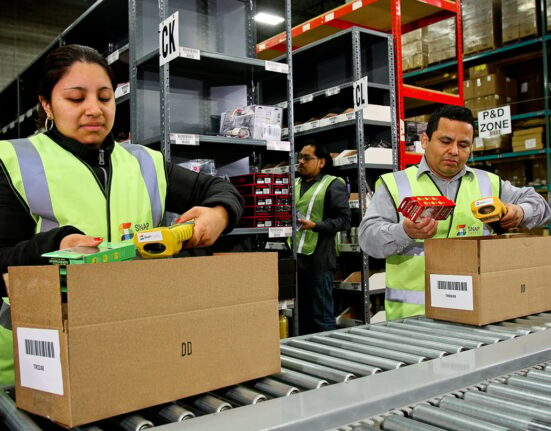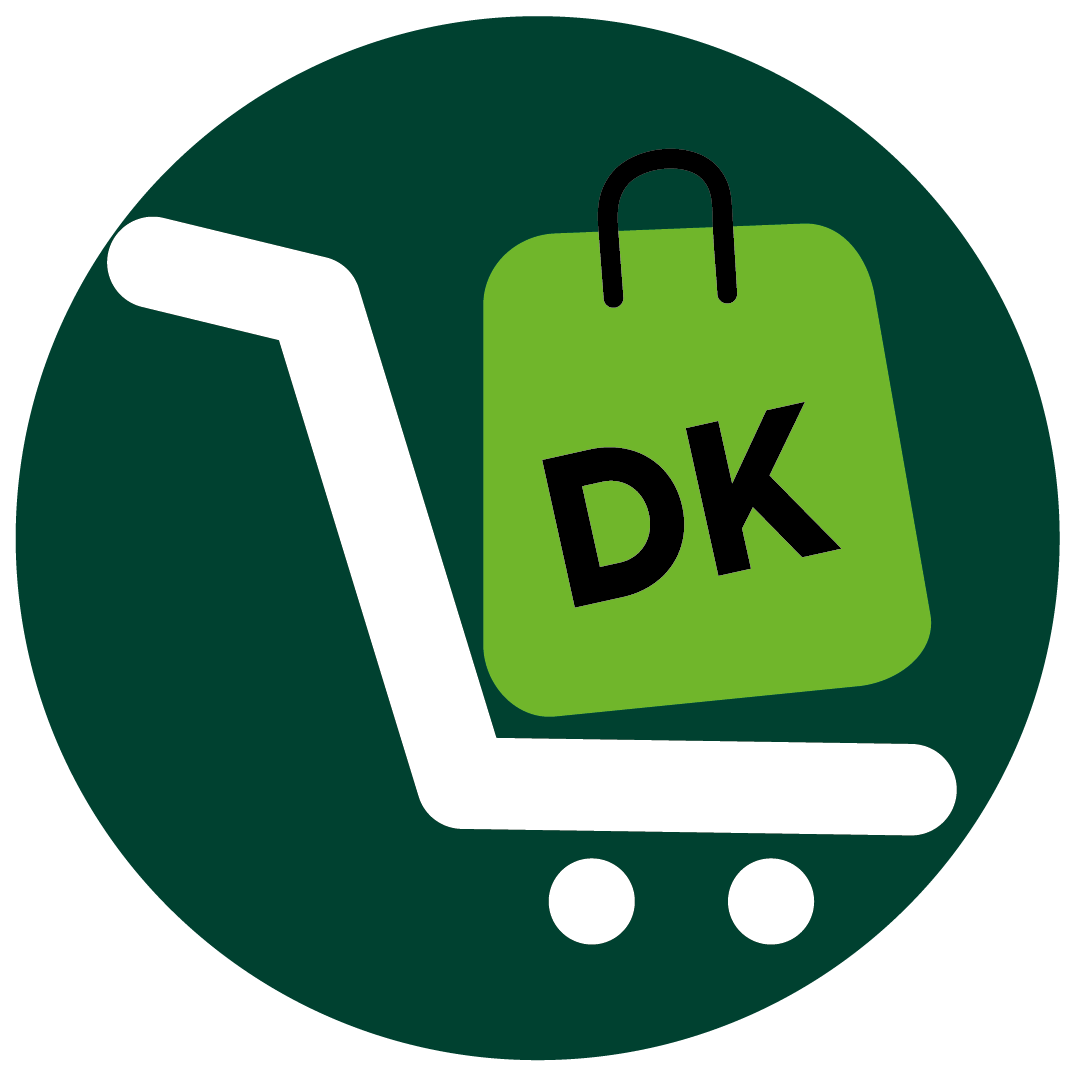Our verdict

Flexport and Amazon FBA (Fulfillment by Amazon) cater to different aspects of your ecommerce business. Flexport excels as a comprehensive logistics provider, handling your entire supply chain from sourcing to final delivery. It offers granular control, visibility, and potential cost savings through optimized routes and carrier negotiations.
On the other hand, Amazon FBA shines in fulfillment and order management, providing seamless integration with Amazon’s marketplace, rapid shipping, and robust customer service. However, it comes with higher fees and less control over your brand.
Ultimately, the best choice depends on your specific needs: prioritize control and cost-efficiency with Flexport, or opt for convenience and speed with Amazon FBA. Consider a hybrid approach for maximum benefit, using Flexport for international shipping and Amazon FBA for domestic fulfillment.
Why Choose Flexport
Who Flexport Is Best For
Choose Flexport if you’re an individual who needs:
- Control over your entire supply chain
- Streamlined international shipping and logistics
- Real-time visibility and tracking of shipments
- Data-driven insights and analytics for supply chain optimization
- Integration with other supply chain management tools
- Customizable logistics solutions tailored to specific business needs
Who Flexport Isn't Best For
Consider a Flexport alternative if you’re someone who require:
- Comprehensive local logistics support in certain regions.
- Fully automated, self-service platforms without human interaction.
- Low-cost, small-scale shipping solutions.
- Specialized industry-specific logistics (e.g., perishable goods, hazardous materials).
- Traditional freight forwarding with minimal tech integration.
- Simple, domestic-only shipping requirements.
- Low-volume, infrequent shipping needs.
>>> MORE : Spocket Vs Doba
Why Choose Amazon FBA
Who Amazon FBA Is Best For
Amazon FBA is your best option is you:
- Look for a hands-off fulfillment process.
- Want to leverage Amazon’s vast customer base.
- Need Amazon’s customer service and returns management.
- Have high sales volume and needing scalable logistics.
- Aim to expand globally with Amazon’s infrastructure.
Who Amazon FBA Isn't Best For
Look elsewhere if you’re someone who:
- Prefers to handle your own fulfillment and shipping.
- Has low margins, as FBA fees can be significant.
- Sells slow-moving or low-demand products.
- Is uncomfortable with Amazon’s strict inventory requirements.
- Wants full control over your customer interactions.
Flexport vs Amazon FBA: Main Differences
| Flexport | Amazon FBA |
Ideal For | Flexport is ideal if you’re managing global logistics and supply chain operations, particularly if you want a streamlined, tech-driven approach to shipping goods internationally. The points below further explain what the platform is ideal for and how you can get its best:
| Do you want to simplify your ecommerce business and focus more on growth rather than logistics? Amazon FBA is just for you. It is ideal for:
|
Standout Features |
|
|
Pricing | Flexport’s pricing structure is dynamic and tailored to your needs. Unlike traditional freight forwarders with fixed rates, Flexport operates on a transactional model. This means the cost you pay depends on a variety of factors including:
| Amazon FBA charges a combination of fees for storing, picking, packing, shipping, and managing your products. Selling Plan Fee:
The rates vary by storage location and time of year (higher during peak seasons). |
>>> PRO TIPS : Starting An Etsy Store: Waste Of Time Or Not?
Flexport vs Amazon FBA: Standout Features
Flexport Standout Features

Flexport is a global logistics and freight forwarding platform that leverages technology to simplify supply chain management for you. It stands out for
- End-to-end visibility: Flexport offers comprehensive tracking and monitoring of goods throughout the entire supply chain. This feature allows you to have real-time visibility into the status of your shipments so that you can manage inventory and plan effectively.
- Data-driven insights: It provides detailed analytics and reports on various aspects of the supply chain, such as shipping times, costs, and performance metrics. Feel free to make informed decisions in order to optimize your logistics operations.
- Customs compliance and documentation: The platform simplifies the complex process of customs clearance by managing all necessary documentation and ensuring compliance with international trade regulations.
- Collaborative platform: Use Flexport for seamless communication and collaboration between all stakeholders in the supply chain, including suppliers, carriers, and customers. You goal is to ensure everyone is on the same page and can respond quickly to any issues.
- Flexible transportation options: Flexport offers a variety of transportation options, including air, ocean, and ground shipping, allowing you to choose the most cost-effective and efficient mode of transport for your needs.
- Supply chain optimization: By leveraging advanced algorithms and data analytics, Flexport helps you optimize your supply chain, reducing costs and improving delivery times.
- Global trade expertise: With a team of experts in global trade and logistics, Flexport offers valuable insights and support to businesses navigating international markets. This expertise helps you overcome challenges that relate to tariffs, trade agreements, and other regulatory issues.
- Cost transparency: Flexport offers clear and detailed pricing information. You can be sure of understanding the cost breakdown of your shipments.
Amazon FBA Standout Features

Amazon FBA (Fulfillment by Amazon) is an excellent option if you’re looking to streamline your ecommerce business. It remains a good option for your business for these six features:
- Prime eligibility: When you use Amazon FBA, your products become eligible for Amazon Prime. This means your items is going to be available for free two-day shipping to millions of Prime members, giving you a competitive edge and potentially boosting your sales.
- Global reach: Amazon FBA allows you to expand your business to international markets effortlessly. Amazon takes care of international shipping, returns, and customer service, allowing you to focus on scaling your business globally.
- Customer service management: One of the most challenging aspects of ecommerce is managing customer inquiries and returns. Amazon FBA handles all customer service issues, including returns and refunds, so you can save time and ensure customers are satisfied.
- Storage and shipping: With Amazon FBA, you don’t have to worry about storing your inventory or managing logistics. Amazon stores your products in their fulfillment centers and handles all aspects of packaging and shipping. This allows you to focus on other parts of your business while Amazon takes care of the heavy lifting.
- Multi-channel fulfillment: Even if you sell on other platforms like eBay, Shopify, or your own website, you can still use Amazon FBA to fulfill those orders. This feature streamlines your fulfillment process by centralizing your inventory and shipping through Amazon.
- Scalability: Whether you’re a small business just starting or an established brand looking to scale, Amazon FBA grows with you. As your business expands, Amazon’s vast infrastructure can handle increased demand, allowing you to focus on growing your product line and customer base.
Pros and Cons of Flexport

- Pros
- Offers comprehensive global logistics services.
- Provides real-time visibility into shipments.
- Integrates technology for seamless supply chain management.
- Ensures compliance with international trade regulations.
- Supports various modes of transportation.
- Facilitates customs clearance and documentation.
- Cons
- Requires a learning curve for new users.
- Needs high shipping volumes to justify costs.
- Limits flexibility with smaller shipments.
- Involves potential delays due to customs or regulations.
- Relies heavily on digital platforms, which may not suit all users.
- Demands commitment to long-term contracts in some cases.
Pros and Cons of Amazon FBA

- Pros
- Stores and ships inventory.
- Streamlines multi-channel fulfillment.
- Scales with your business growth.
- Offers access to Amazon Prime benefits.
- Provides global market reach.
- Manages customer service and returns.
- Cons
- Requires payment of storage and fulfillment fees.
- Limits control over branding and packaging.
- Demands strict compliance with Amazon’s rules.
- Needs inventory management to avoid long-term storage fees.
- Involves potential competition from Amazon’s own products.
- Necessitates reliance on Amazon’s fulfillment process.
>>> GET SMARTER : Simple Fulfillment VS DHL eCommerce
Flexport vs Amazon FBA: Customer Reviews
Flexport has an average rating on TrustPilot, having a 3.4/5-star rating based on 79 customer reviews. Amazon attracts a bad review of 1.7 out of 5-star on TrustPilot. Note that the rating is based on all the services Amazon offers, including Amazon FBA. So, it’s going to be difficult to filter out the ratings that pertain to the fulfillment services.
Flexport and Amazon FBA Competitors
ShipBob
ShipBob is a fulfillment service that handles the storage, packing, and shipping of your products. Unlike Amazon FBA or Flexport, ShipBob offers more control over your brand and pricing. It charges a monthly storage fee per bin or pallet, plus a flat rate for receiving inventory. It calculates shipping costs based on weight, dimensions, and destination. While it doesn’t publicly list exact pricing, ShipBob emphasizes transparency and provides tailored quotes based on your specific needs. Additional fees apply for specific services like returns management or kitting.
DHL
DHL is a global logistics powerhouse that’s popular for its speed and reliability. It offers a wide range of shipping services, from express document delivery to freight forwarding for large shipments. Its extensive network spans the globe, ensuring efficient delivery to almost any destination. While DHL is famous for premium service, its pricing is dynamic and depends on factors like package size, weight, destination, and shipping speed. To get an accurate quote, you need to use its online shipping calculator or contact the sales department directly. Remember, faster shipping options generally come with higher costs.
UPS
UPS is a global leader in package and freight delivery, offering a wide range of services from next-day delivery to international shipping. Known for its reliability and extensive network, UPS provides options for individuals and businesses alike. However, determining an exact pricing figure is challenging due to the multitude of factors influencing costs, such as package size, weight, destination, and shipping speed.
UPS offers various pricing models, including flat rates for specific package dimensions and weight, time-definite services with premium costs, and dimensional weight pricing based on package size. Use UPS’s online shipping calculator.
Pro Tips
- Understand your business model: Analyze your product type, sales volume, target market, and fulfillment needs. If you’re selling high-value, low-volume products with specific shipping requirements, Flexport is a better fit. For high-volume, standardized products aiming for quick fulfillment, Amazon FBA is the way to go.
- Calculate your costs: Compare the total costs associated with each option, including shipping, warehousing, fulfillment fees, and potential additional charges. Consider factors like inventory holding costs, shipping rates, and Amazon’s FBA fees. Create a detailed cost-benefit analysis to identify the most economical option.
- Evaluate your control preferences: Assess how much control you want over your supply chain and customer experience. Flexport offers greater control over shipping and logistics, while Amazon FBA handles almost everything, giving you more time to focus on marketing and sales.
- Consider your scalability needs: Project your future growth plans. If you anticipate rapid growth, Amazon FBA’s infrastructure can handle increased sales volume more easily. However, if you prefer gradual scaling and have specific fulfillment requirements, Flexport offers more flexibility.
- Leverage your resources: Utilize your existing network and expertise. If you have strong relationships in the logistics industry, Flexport is a better choice. On the other hand, if you’re new to ecommerce and want to leverage Amazon’s customer base and fulfillment network, Amazon FBA is advantageous.
Recap
Choosing between Flexport and Amazon FBA hinges on your business model, budget, control preferences, growth plans, and resources. If you prioritize control over your supply chain and are comfortable managing logistics, Flexport promises you the best deal.
However, if you’re looking for rapid growth, a hands-off approach, and can leverage Amazon’s customer base, Amazon FBA is surely the best way to go. Carefully weigh the pros and cons of each option based on your specific needs to make the best decision for your business.
















